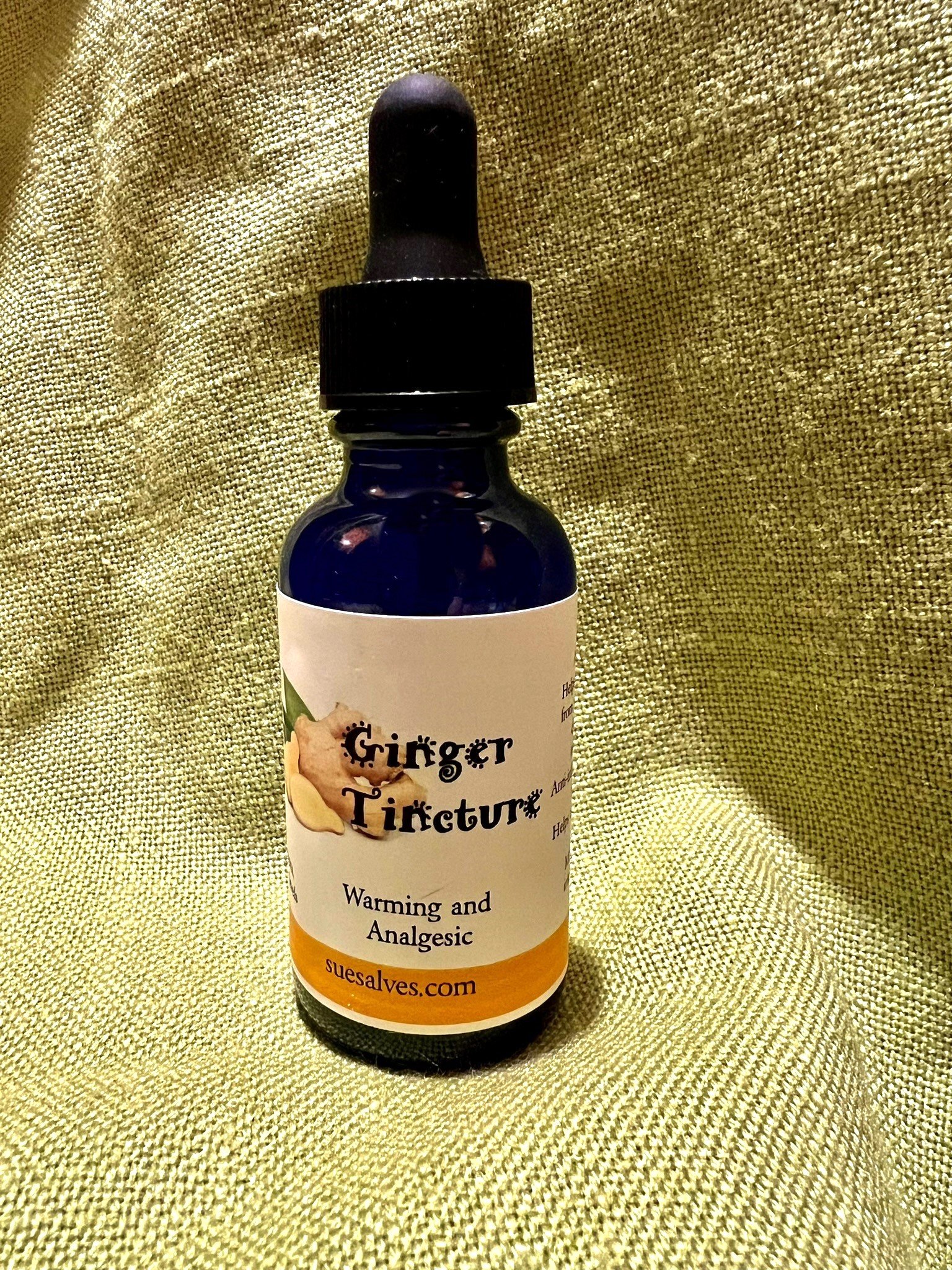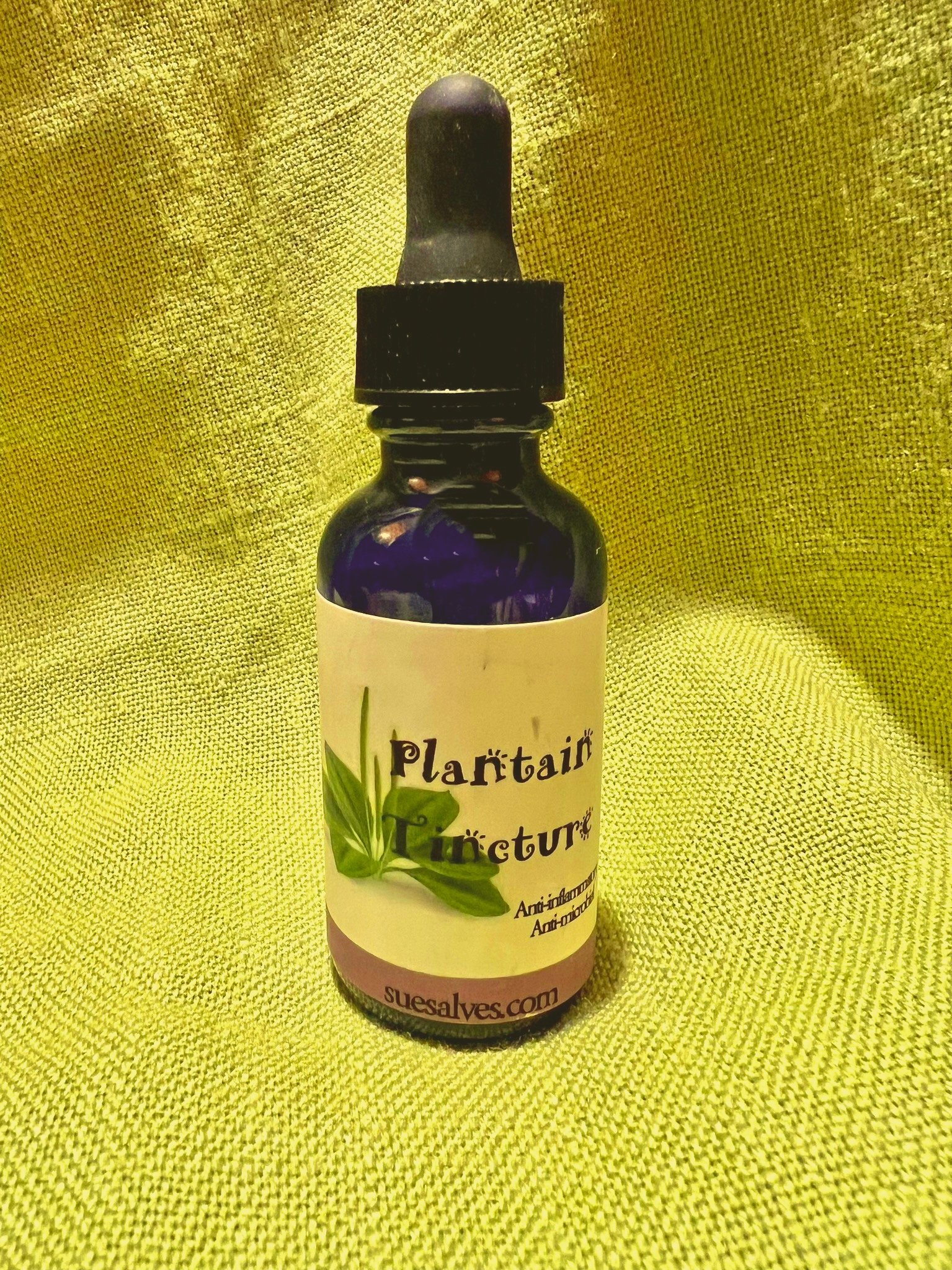Rosemary Tincture
Rosemary tincture is a tonic for the brain. Rosemary can aid memory and concentration. Rosemary is also known to aid digestive function. As a decongestant, Rosemary is known to relieve congestion caused by colds and flu. As an analgesic Rosemary is known to relieve pain and helps to calm muscle spasms. Famous as a cardio tonic, Rosemary has been known to stimulate poor circulation and may improve varicose veins.
TINCTURES
Tinctures are a liquid extract made by steeping fresh organic herbs in alcohol. Tinctures are the most concentrated form of herbal medicine.
Tinctures are best taken under the tongue where they directly enter the blood stream. They are very strong and may be taken diluted in water, juice or tea. Avoid liquids for 10-15 minutes afterwards.
Check with your doctor to be sure the herbs do not interfere with your medications. Some herbs are not recommended during pregnancy.
Tincture Dosage
Tincture dosage depends on the herb, person and situation. In general, 1/4 – 1/2 teaspoon (15–30 drops, 1/2 – 1 dropperful) of tincture is used 3 times daily for chronic situations. For acute conditions, you want to take smaller and/or more frequent doses, such as 1/4 teaspoon every hour.
Rosemary tincture is a tonic for the brain. Rosemary can aid memory and concentration. Rosemary is also known to aid digestive function. As a decongestant, Rosemary is known to relieve congestion caused by colds and flu. As an analgesic Rosemary is known to relieve pain and helps to calm muscle spasms. Famous as a cardio tonic, Rosemary has been known to stimulate poor circulation and may improve varicose veins.
TINCTURES
Tinctures are a liquid extract made by steeping fresh organic herbs in alcohol. Tinctures are the most concentrated form of herbal medicine.
Tinctures are best taken under the tongue where they directly enter the blood stream. They are very strong and may be taken diluted in water, juice or tea. Avoid liquids for 10-15 minutes afterwards.
Check with your doctor to be sure the herbs do not interfere with your medications. Some herbs are not recommended during pregnancy.
Tincture Dosage
Tincture dosage depends on the herb, person and situation. In general, 1/4 – 1/2 teaspoon (15–30 drops, 1/2 – 1 dropperful) of tincture is used 3 times daily for chronic situations. For acute conditions, you want to take smaller and/or more frequent doses, such as 1/4 teaspoon every hour.
Rosemary tincture is a tonic for the brain. Rosemary can aid memory and concentration. Rosemary is also known to aid digestive function. As a decongestant, Rosemary is known to relieve congestion caused by colds and flu. As an analgesic Rosemary is known to relieve pain and helps to calm muscle spasms. Famous as a cardio tonic, Rosemary has been known to stimulate poor circulation and may improve varicose veins.
TINCTURES
Tinctures are a liquid extract made by steeping fresh organic herbs in alcohol. Tinctures are the most concentrated form of herbal medicine.
Tinctures are best taken under the tongue where they directly enter the blood stream. They are very strong and may be taken diluted in water, juice or tea. Avoid liquids for 10-15 minutes afterwards.
Check with your doctor to be sure the herbs do not interfere with your medications. Some herbs are not recommended during pregnancy.
Tincture Dosage
Tincture dosage depends on the herb, person and situation. In general, 1/4 – 1/2 teaspoon (15–30 drops, 1/2 – 1 dropperful) of tincture is used 3 times daily for chronic situations. For acute conditions, you want to take smaller and/or more frequent doses, such as 1/4 teaspoon every hour.






